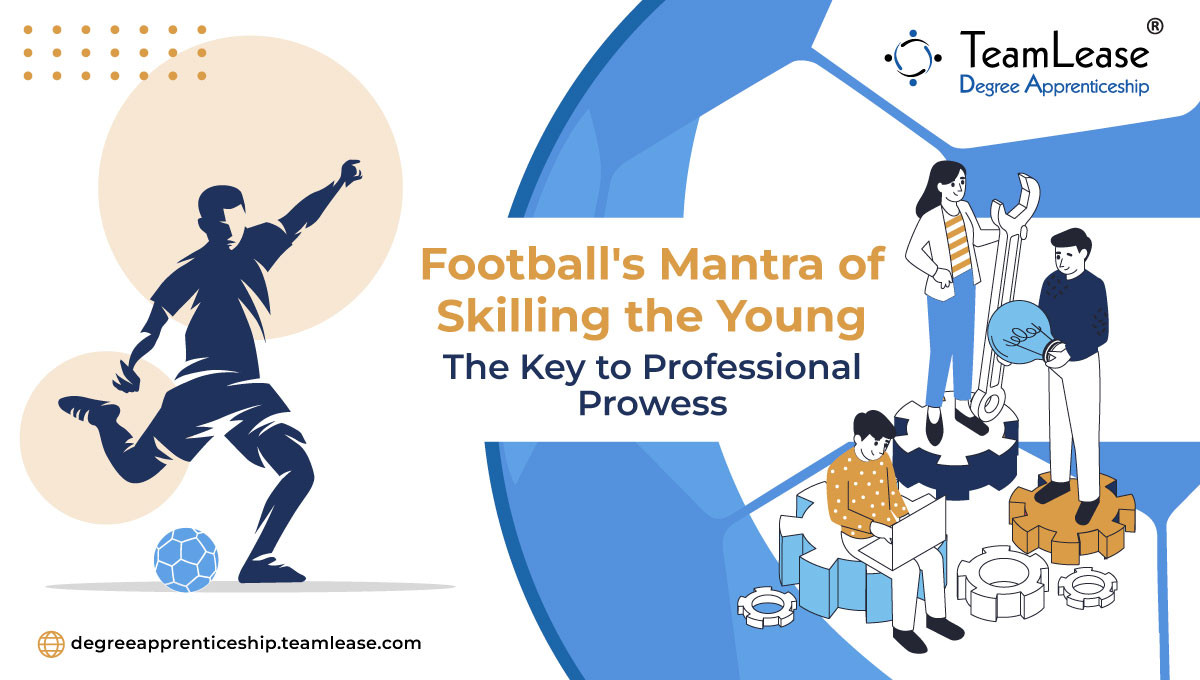Invest in youth to groom champions of tomorrow
The recently concluded Fifa world cup has been a treat for the eyes as it was a true testament to the amazing skills of these players. Argentina bagged its third world cup after 36 years to mark a fitting end to Messi’s illustrious international career that began at the young age of 13.
As we sat through the night savoring the highlights of this match and remembering other greats such as Socrates, Cruyff, Zidane, and Maradona, we arrived at an epiphanic realization that the key to success lies in catching them young! Tracking the career trajectory of prominent sportspersons proves that skill development is most effective when it begins at an early age. Ronaldo, Mbappe, Messi, Tendulkar, Praggnanandhaa are all examples of pure genius identified and nurtured from a young age. The thinker Swami Vivekananda expostulated this very thought when he said, “Take up one idea. Make that one idea your life — think of it, dream of it, and live on that idea. Let the brain, muscles, nerves, and every part of your body, be full of that idea and just leave every other idea alone. This is the way to success”. We as a nation seem to have missed the plot in striving to expand our options and spheres of influence through education. In the quest to make our youth a jack of all trades, we are left with a whole generation of unemployable youth who is master of none. The NEP and the NCrF acknowledge the lacunae in our education system and seek to correct them by placing a greater emphasis on skill development. While these policies have created the opportunity to recalibrate our education system, it is the responsibility of businesses and individuals to work together to focus on skill development as a way of life.
We must be cognizant of the fact that not everyone is academically inclined or seeks to engage in academic pursuits later in life. Why then do we insist that our children enroll for a three to five-year university degree that fails to provide them with the skills required for employment? Several countries worldwide have modified their education system to highlight skill development as a plausible option after completing the high school certificate. South Korea for instance, recalibrated its education system to cater to the needs of the economy which takes precedence over everything else. Over the past few decades the South Korean government, schools, and industry have worked with the Swiss government and industry to redesign and modernize the country's vocational education sector with a network of vocational schools called "Meister Schools". The purpose of the Meister schools is to reduce the country's shortage of vocational occupations such as auto mechanics, plumbers, welders, boilermakers, electricians, carpenters, millwrights, machinists, and machine operators as many of these positions go unfilled. Based on the German model, these Meister schools prepare youth to become masters of a skilled trade.
Finding the Balance between Formal Education and Skills Training
The government of South Korea has taken initiatives to improve the perception of vocational training and combat the negative stigma attached to skilled manual labor and technical work. In addition, vocational streams have been integrated with academic streams to allow a seamless transition to university in order to allow further advancement if a young South Korean chooses to pursue a university degree. Meister schools offer apprenticeship-based training which takes place at vocational high schools, and community and junior colleges. The South Korean government has also established an "Employment First, College Later" philosophy wherein students are encouraged to seek employment before making plans for university.
The Skill India Mission, the brainchild of Hon’ble Prime Minister Shri Narendra Modi was launched with a similar objective on 15 July 2015. The program aimed to train over 40 crore people in different skills with the belief that skills help to intensify productivity and improve the quality of work and life. According to the World Trade Organization, the GDP can increase by 3%-5% in 2035, if India focuses on skill development and training. Thus, a renewed focus on skill development is an individual need that is further incentivized by the prospect of overall growth and prosperity of the country.
In this age of Information and technical advances, global forecasts indicate high demand for vocational skills over unskilled labor. Therefore, it is essential that we evaluate and recalibrate our priorities with respect to education and skill development. We must replicate the success stories from the world of sports across all areas of expertise to become the true ‘skill capital of the world’ as envisioned by our leaders.
Skill Development in Professional Sports as well as Apprenticeship Programs Converge along the following points:
- Identify areas of interest and recognize talent in the early years
- Start professional training at a young age to attain professional prowess
- Focus on nurturing and grooming core skill development
- Develop proficiency by the time others begin to enter the workforce
- Passion becomes a lucrative source of Livelihood
- Achieve professional milestones early and continue to build new skills
- Flexibility to Return to Academic pursuits and Degree programs
How can employers build their workforce for the future world of work




No comments yet
Your Comment